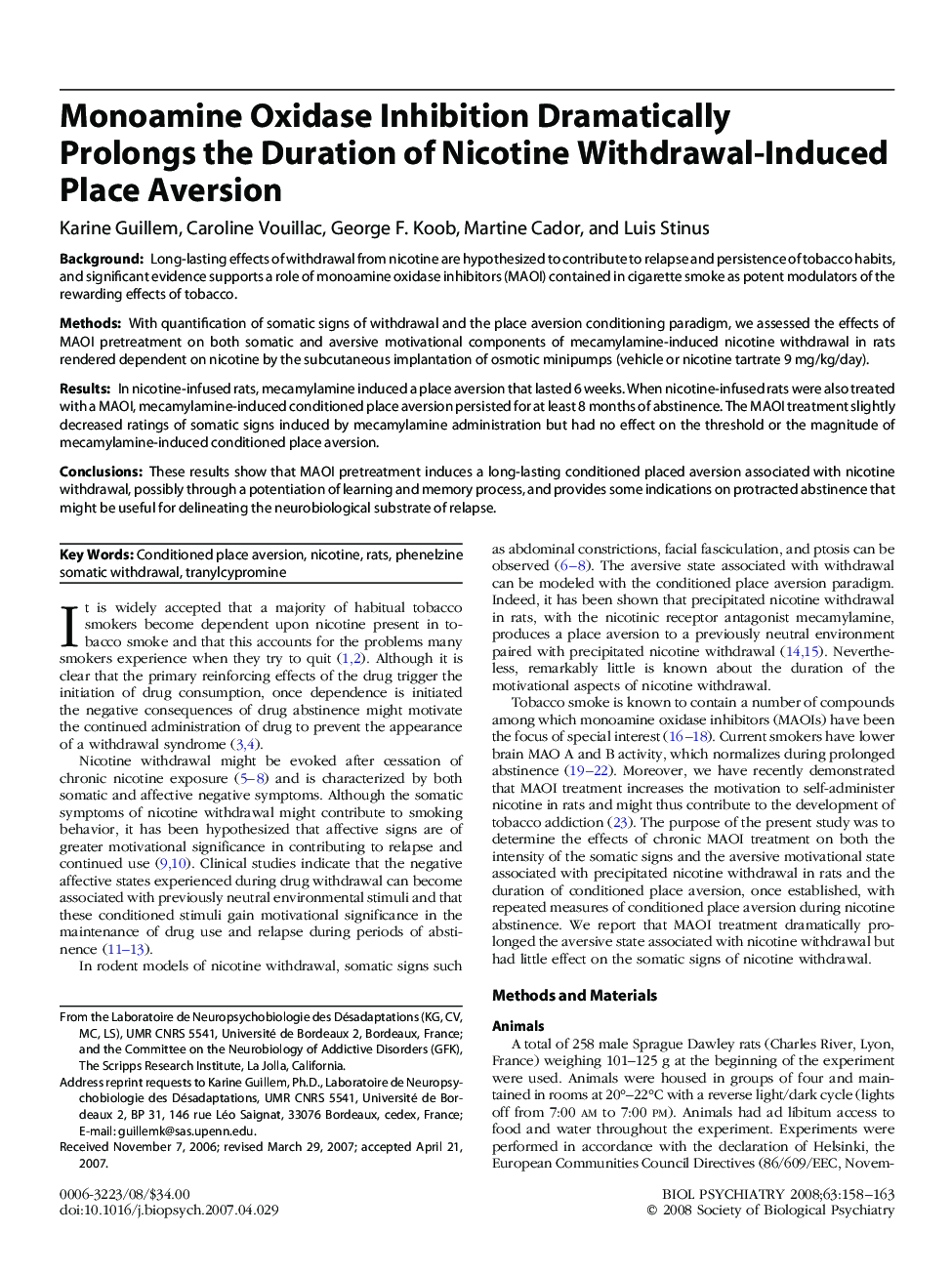| Article ID | Journal | Published Year | Pages | File Type |
|---|---|---|---|---|
| 4180804 | Biological Psychiatry | 2008 | 6 Pages |
BackgroundLong-lasting effects of withdrawal from nicotine are hypothesized to contribute to relapse and persistence of tobacco habits, and significant evidence supports a role of monoamine oxidase inhibitors (MAOI) contained in cigarette smoke as potent modulators of the rewarding effects of tobacco.MethodsWith quantification of somatic signs of withdrawal and the place aversion conditioning paradigm, we assessed the effects of MAOI pretreatment on both somatic and aversive motivational components of mecamylamine-induced nicotine withdrawal in rats rendered dependent on nicotine by the subcutaneous implantation of osmotic minipumps (vehicle or nicotine tartrate 9 mg/kg/day).ResultsIn nicotine-infused rats, mecamylamine induced a place aversion that lasted 6 weeks. When nicotine-infused rats were also treated with a MAOI, mecamylamine-induced conditioned place aversion persisted for at least 8 months of abstinence. The MAOI treatment slightly decreased ratings of somatic signs induced by mecamylamine administration but had no effect on the threshold or the magnitude of mecamylamine-induced conditioned place aversion.ConclusionsThese results show that MAOI pretreatment induces a long-lasting conditioned placed aversion associated with nicotine withdrawal, possibly through a potentiation of learning and memory process, and provides some indications on protracted abstinence that might be useful for delineating the neurobiological substrate of relapse.
